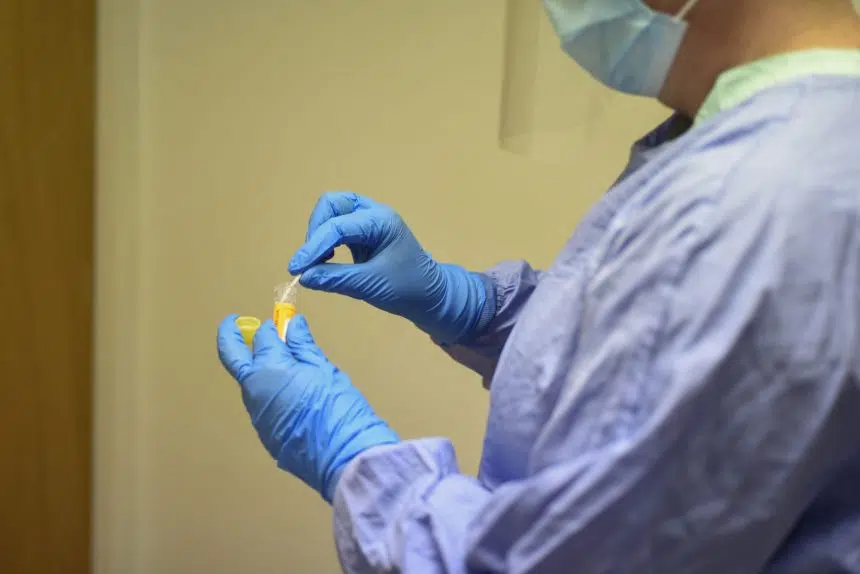Saskatchewan saw a big jump in cases over the weekend and into Monday, many on Hutterite colonies in southwest and west-central parts of the province.
The province’s chief medical health officer, Dr. Saqib Shahab, said 46 cases were in Hutterite and non-Hutterite communities and were due to “communal living” situations.
The Hutterian Safety Council and its COVID-19 task force have been providing information and guidance to communities in Alberta, Manitoba and Saskatchewan.
David Tschetter, the council’s chairperson, said the council’s response to the pandemic started months ago.
“We anticipated it is inevitable that we would get cases within our communities. Therefore, we’ve led them, guided them (and) provided them pertinent information — how to go about their daily activities, self-isolating (and) use a common-sense approach when (they do) contract these cases,” said Tschetter.
Tschetter said, for the most part, communities have been self-isolating but at first, some leaders were resistant. He said for some there was a mentality that their communities are generally isolated so they felt they were medically isolated as well.
“Clearly that’s not the case,” said Tschetter.
But Tschetter said in recent weeks, co-operation and collaboration have drastically improved.
“Where there are cases identified, for the most part, community leaders are realizing that this is not a joke, it’s not a conspiracy theory and we do have vulnerable (people) — and in some communities there are very sick people — and therefore it is in the common interest of everyone to participate and collaborate,” explained Tschetter.
He said things like widespread testing are happening in communities and the council is encouraging testing even for people without symptoms.
Tschetter echoed statements from the Saskatchewan Health Authority this week, saying one of the reasons we’re seeing so many more cases in these colonies is because they’ve invited the SHA in to test and public health is doing active case finding.
Some in the southwest have complained that Hutterites have knocked on their doors or set up small markets to sell things like produce. Tschetter said he hasn’t heard of that happening, but said he wouldn’t recommend it right now.
“I would strongly urge that physical distancing and respecting non-Hutterite broader community members should be a top priority. So cold-calling from door to door (and) selling produce may not be a wise choice at this point,” said Tschetter.
When Hutterites do go out to neighbouring communities, Tschetter said some have felt a stigma since the recent numbers of cases have come out. Tschetter said he wanted to be careful about his reaction because, in some cases, those Hutterite members may not have been making the right decisions in their actions at the time.
But Tschetter did say we shouldn’t be focusing on things that are different during a pandemic. Instead, we should be focusing on what our common ground is.
“Not every Hutterite has COVID (and) not every white, Caucasian non-Hutterite has COVID,” he said. “It would be foolish to think that everybody I run into at Costco has COVID.”
Tschetter quoted an SHA doctor he has worked with, saying we’re dealing with COVID cases and people, and that’s where the focus needs to stay.
“Let’s not lose sight of what we’re trying to accomplish here because we get into the weeds real, real quick when we start introducing our cultural differences and so on and so forth,” Tschetter said.
“There isn’t a single person that lives in the province of Saskatchewan that doesn’t pose a certain amount of risk. We all have a hand in it and we all have a moral obligation to do our part regardless of creed, culture, faith or tradition.”
When it comes to the province revealing where cases are, Tschetter said he thinks members of the public do have a right to know about an increased risk in their area, but it shouldn’t get too specific. He said the province wouldn’t point out a city block where there’s a case, and the same courtesy should be extended to Hutterite communities.











